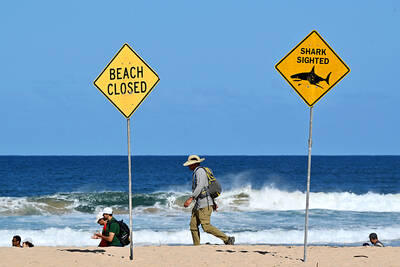US President Barack Obama on Friday formally announced the lifting of US sanctions on Myanmar by terminating an emergency order that deemed the policies of the former military government a threat to US national security.
“I have determined that the situation that gave rise to the national emergency ... has been significantly altered by Burma’s [Myanmar’s] substantial advances to promote democracy, including historic elections in November 2015,” Obama said in a letter to the US House and Senate speakers.
A US Department of the Treasury statement said that as a result of the termination of the emergency order the economic and financial sanctions administered by the US Department of the Treasury’s Office of Foreign Assets Control were no longer in effect.
The move followed a meeting between Burmese State Counsellor Aung San Suu Kyi and Obama in Washington last month, when she called for the lifting of economic sanctions against her country, and he said he was willing to do this.
Aung San Suu Kyi’s National League for Democracy won a sweeping victory in the November elections last year.
Obama’s letter pointed to the formation of a democratically elected, civilian-led government as a result of the election, the release of many political prisoners and improved human rights and fundamental freedoms, including freedom of expression and freedom of association and peaceful assembly.
“While Burma [Myanmar] faces significant challenges, including the consolidation of its democracy, the United States can, and intends to, use other means to support the government and people of Burma in their efforts to address these challenges,” Obama’s letter said.
Aung San Suu Kyi, a Nobel Peace Prize laureate and democracy icon, helped persuade the West to impose sanctions on Myanmar during her years as a jailed opposition leader.
She is now trying to strike a balance between showing her people the economic rewards of a democratic transition while keeping pressure on the country’s generals for further reforms.
Some members of the US Congress have expressed concerns about the extent and durability of change in Myanmar and introduced legislation seeking to give lawmakers some influence on the process of easing sanctions.
Rights groups condemned last month’s announcement, saying it forfeited leverage on Myanmar’s military.
Officials of the US administration have said the removal of sanctions would not apply to military-to-military assistance, given the extent of the military’s involvement in politics and rights abuses.
Aung San Suu Kyi herself has been criticized for doing too little to address the plight of Myanmar’s stateless Rohingya Muslim minority.
The US Department of State last month said that several restrictions would remain in place, including barring US visas for Myanmar’s military leaders.

With much pomp and circumstance, Cairo is today to inaugurate the long-awaited Grand Egyptian Museum (GEM), widely presented as the crowning jewel on authorities’ efforts to overhaul the country’s vital tourism industry. With a panoramic view of the Giza pyramids plateau, the museum houses thousands of artifacts spanning more than 5,000 years of Egyptian antiquity at a whopping cost of more than US$1 billion. More than two decades in the making, the ultra-modern museum anticipates 5 million visitors annually, with never-before-seen relics on display. In the run-up to the grand opening, Egyptian media and official statements have hailed the “historic moment,” describing the

SECRETIVE SECT: Tetsuya Yamagami was said to have held a grudge against the Unification Church for bankrupting his family after his mother donated about ¥100m The gunman accused of killing former Japanese prime minister Shinzo Abe yesterday pleaded guilty, three years after the assassination in broad daylight shocked the world. The slaying forced a reckoning in a nation with little experience of gun violence, and ignited scrutiny of alleged ties between prominent conservative lawmakers and a secretive sect, the Unification Church. “Everything is true,” Tetsuya Yamagami said at a court in the western city of Nara, admitting to murdering the nation’s longest-serving leader in July 2022. The 45-year-old was led into the room by four security officials. When the judge asked him to state his name, Yamagami, who

‘CHILD PORNOGRAPHY’: The doll on Shein’s Web site measure about 80cm in height, and it was holding a teddy bear in a photo published by a daily newspaper France’s anti-fraud unit on Saturday said it had reported Asian e-commerce giant Shein (希音) for selling what it described as “sex dolls with a childlike appearance.” The French Directorate General for Competition, Consumer Affairs and Fraud Control (DGCCRF) said in a statement that the “description and categorization” of the items on Shein’s Web site “make it difficult to doubt the child pornography nature of the content.” Shortly after the statement, Shein announced that the dolls in question had been withdrawn from its platform and that it had launched an internal inquiry. On its Web site, Le Parisien daily published a

DEADLY PREDATORS: In New South Wales, smart drumlines — anchored buoys with baited hooks — send an alert when a shark bites, allowing the sharks to be tagged High above Sydney’s beaches, drones seek one of the world’s deadliest predators, scanning for the flick of a tail, the swish of a fin or a shadow slipping through the swell. Australia’s oceans are teeming with sharks, with great whites topping the list of species that might fatally chomp a human. Undeterred, Australians flock to the sea in huge numbers — with a survey last year showing that nearly two-thirds of the population made a total of 650 million coastal visits in a single year. Many beach lovers accept the risks. When a shark killed surfer Mercury Psillakis off a northern Sydney beach last